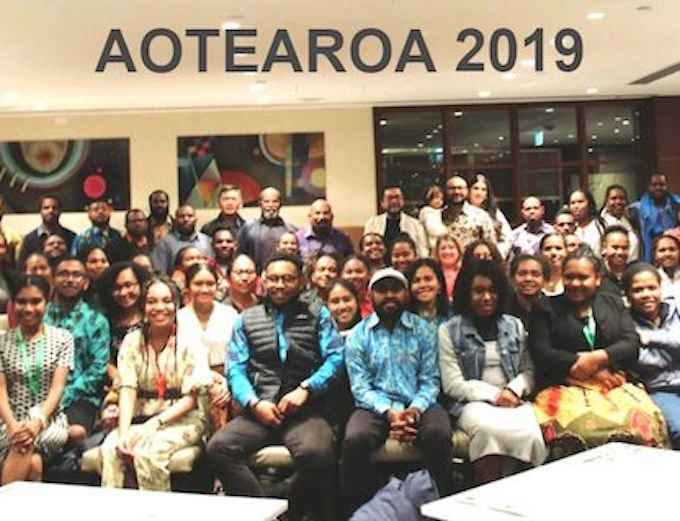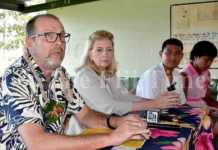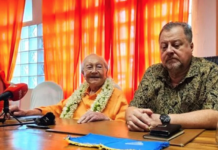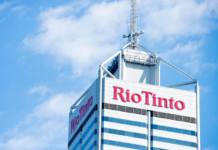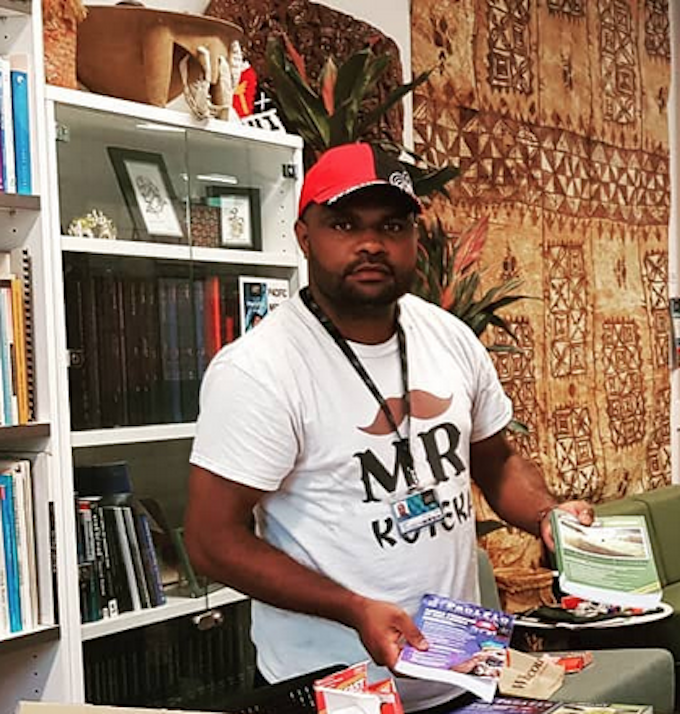
SPECIAL REPORT: By Mary Argue of the Wairarapa Times-Age
Screams erupted as the sound of gunshots ricocheted around the open-air market. People ran.
It was bloody.
“I saw from my own eyes the gun violence,” says Laurens Ikinia.
- READ MORE: Indonesian policy switch cuts off funding for Papuan students in NZ – Matthew Scott
- Why have scholarships dried up for Papuan ‘band of brothers’? – Mary Argue
- Papuan students form global umbrella body, reaffirm campaign for education rights
- How Google moulds public opinion on West Papua, disrupts education – Yamin Kogoya
- Papuan students succeed in NZ – ‘the golden generation from Papua’
- Mahasiswa Papua di luar negeri deklarasikan IAPSO – Tabloid Jubi [Bahasa Indonesian]
- Papuan students succeed in NZ – ‘the golden generation from Papua’
- Other West Papua education reports
“It was just crazy.”
Ikinia was still a child when he witnessed Indonesian security forces open fire at a market in Wamena, the largest highland town in West Papua’s Baliem Valley.
He says it was a massacre. It was later recognised as the 2003 Wamena Incident (or Peristiwa Wamena 2003 in Bahasa Indonesian).
What began as a raid on an armoury led to a two-month operation by the Indonesian Army and National Police. Thousands of villagers were displaced, civilians killed.
It was a response to increasing cries for West Papuan independence.
Some healing in NZ
The trauma of that day lasts, says Ikinia, but in the recent years, studying in New Zealand he has experienced some healing.
Ikinia is one of 125 West Papuan students in Aotearoa, arriving in 2015 and 2016 on a scholarship to study abroad.
He aspires to write Pasifika stories, about the people and places largely ignored by the international media.
He is close to completing a Master of Communications at Auckland University of Technology.
However, the domino effect of legislative changes in Jakarta means the 27-year-old stands to lose it all.
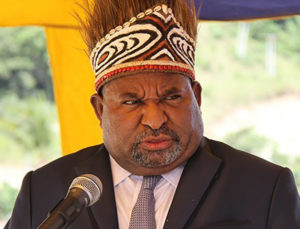
A couple of years before the violence in Wamena, Papua Provincial Governor Lukas Enembe established a scholarship programme for Papuans to study abroad.
The investment in indigenous human resources drew on Special Autonomy funds granted by Jakarta, but employed at the governor’s discretion.
‘Inspired thinking’
“It was inspired thinking on his part,” says Professor David Robie, retired director of the Pacific Media Centre and editor of Asia Pacific Report (APR).
“Get them educated outside West Papua, outside Indonesia, and come back with fresh ideas.”
But in 2021, the money dried up.
In a 20-year legislative review, the central Indonesian government passed a bill ratifying sweeping amendments to the Special Autonomy Law, effectively diverting money and authority away from the provinces.
Despite widespread opposition by West Papuans and calls for an independence referendum instead, the funds propping up several provincial programmes, including the scholarships were allocated elsewhere.
The fallout for the students abroad arrived in December.
A letter to the Indonesian embassy with a list of names — 39 students in New Zealand, and dozens of others overseas, were to be sent home.
‘Underperforming’ students
A translation of the letter says underperforming students and those who had not completed their study in the allocated timeframe would be repatriated by December 31, 2021.
Ikinia’s name is on the list.
“It doesn’t make sense at all,” he says.
“Based on my track record, I was one of the ones that completed the programme the fastest.”
He says all postgraduate students were given a three-month thesis extension due to covid interruptions.
“I am just about to finish.”
He says the decision to recall students is based on incorrect data held by the Provincial Government’s Human Resources Department Bureau (HRDB).
Many phone calls
“We have had a number of phone calls. It seems like people in the department don’t hold the data according to the latest results.
“It’s totally wrong. I did not start my masters in 2016.”
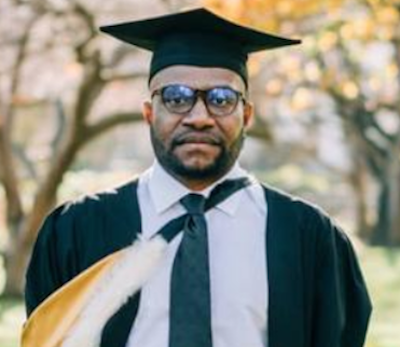
It’s politics, says Yan Wenda, president of the Papuan Student Association in Oceania, and a postgraduate student at the University of Otago.
“The central government in Jakarta changed the law without any input from the provincial government.
“They did the review, and in some areas changed how they managed the money between the provinces and the districts.
“It affects the students studying abroad.”
He says calls to the bureau confirmed this.
‘The money is not here’
“[They said] ‘the money is not here. It’s just not happening for you guys, you’ll have to come back home.’”
He says not only have successful students been recalled, but also the allowance for others has stopped.
“As students we are desperate to pay our rent. We haven’t had any allowance in two months.
“This is why we need to speak up about this.
“We have been victims of this change.”
A public statement issued by the newly formed International Alliance of Papuan Student Associations Overseas (IAPSAO) on January 27 urged the Indonesian government to consider the rights of Papuans to obtain a quality education.
Wenda and student presidents from the United States and Canada — where 81 students were recalled, Russia, Germany, and Japan signed it.
Sustainability of the governor’s policy
They requested the 10 per cent fund allocation for the education sector return to the Papua Provincial Government “for the continuity and sustainability of the governor’s policy to develop Papuan human resources”.
“Don’t kill Papuan human resources anymore with political policy.”
The students have since demanded that the Indonesian Embassy facilitate a dialogue with Indonesian President Joko Widodo.
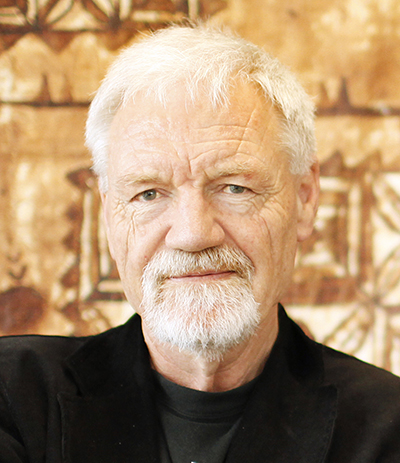
“It is a really sad development,” says Professor Robie.
“It’s all political by Jakarta. It’s all about self-determination, all about denying the rights of Melanesians in the two provinces of Papua to define their own future.”
He says the Jakarta government is uncomfortable with the student scholarships, and says the premise for repatriation was baseless.
“They are trying to curb the rights of Papuan students to get an education overseas.
‘Fundamentally changed’
“What has fundamentally changed is that (provincial) autonomy, that right to send those students to where they want to go.
“Those decisions are no longer in their hands.”
After APR reported on the issue, Dr Robie received a letter from the Indonesian Embassy, stating it was “appalled at the unfounded claims” made in the regional website.
The letter said the Indonesian government was committed to ensuring the right to education for all Indonesian citizens.
In response to questions from the Times-Age the embassy refuted claims that repatriation of students was politically motivated and said the HRDB did not recall students based on academic performance alone.
Length of study and the students’ disciplinary records were also taken into account.
A spokesperson said they could not speak to the accuracy of the information used recall students. However, they said the decision was the result of a thorough assessment by the bureau.
Conceded adjustments made
They denied budget cuts to the Papuan Special Autonomy Fund were responsible, but conceded adjustments were made to the “budgetary system”.
In response to the demands for dialogue with the president:
“[We] have duly engaged and in coordination with concerned students, Students’ Coordinator, student organisations, and the Provincial Government of Papua to further discuss the issue at hand.”
Wenda and Ikinia say scholarship students around the world are united in their stance, they will not return home.
“We are demanding our rights to education. We have no political agenda at all,” Ikinia says.
“The government claims that we have a hidden political agenda, this is totally incorrect and unacceptable. We have been always participating in the events that the Indonesian Embassy has been hosting.”
When Indonesia staged a Pacific Exposition in Auckland in 2019, Papuan students actively participated in the event. Most of the Papuan students participated as local ambassadors to accompany the diplomats and delegations who came from the Pacific.
“I myself have also been the president of the Indonesian Students Association in Palmerston North and at the same time vice-president of Indonesian Students in New Zealand in 2018-19.”
‘Trauma healing’
Ikinia says West Papuans have become a minority in their own land, and suffering is not an anomaly.
“In New Zealand I realised how other people could treat us, like family,” he says.
“This is the treatment we should receive from the Indonesian government.”
He believes coming to New Zealand goes beyond academic achievement.
“It is part of the journey to find the potential in my life. And it’s part of the trauma healing.”
He says the New Zealand government is in a position to help the students, by acknowledging their Pasifika status.
“We are not Asians, we are Melanesians.
“We know NZ is a generous country that helps minority groups. We hope in this difficult time the New Zealand government will open its arms and have us as part of their Pacific family.”
Mary Argue is a Wairarapa Times-Age reporter. Republished with permission.
